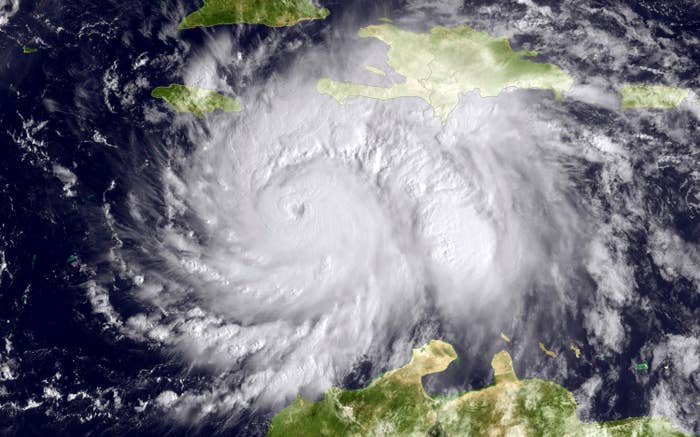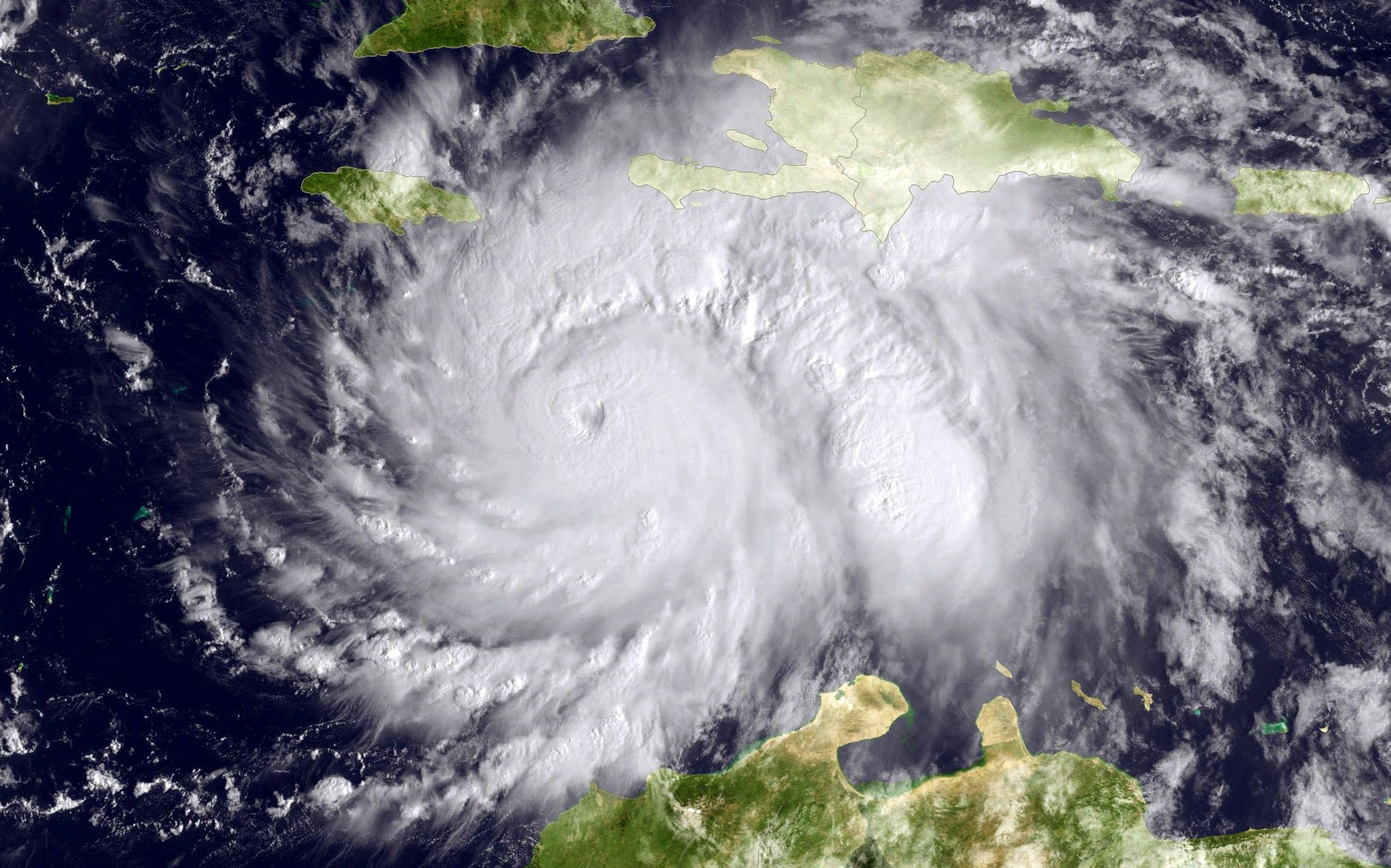
After barreling through the Caribbean, Hurricane Matthew—the most powerful Caribbean in almost a decade—is expected to hit Florida sometime tonight or Friday morning. People along the coast are being urged to evacuate, as the National Hurricane Center warns that Hurricane Matthew "is likely to produce devastating impacts from storm surge, extreme winds, and heavy rains."
As of late Thursday night, the storm was expected to gradually weaken over the next two days.
WHAT HAS HAPPENED:
Hurricane Matthew has already wreaked havoc in the Caribbean, killing four people in the Dominican Republic, one in Colombia and one in St. Vincent and the Grenadines, according to The Chicago Tribune. In Haiti, where the Miami Herald calls the situation "truly catastrophic," 842 people have died since the Category 4 hurricane with 145 mph winds made landfall on Tuesday, according to the most recent update from Reuters. At least 350,000 Haitians need some kind of assistance after the disaster, which the U.N. says is the worst humanitarian crisis in Haiti since the 2010 earthquake. Fortunately, there are no reported deaths in Cuba or the Bahamas, which got hit today.
PREPARATIONS AND WHAT'S EXPECTED:
On Thursday afternoon, the hurricane was southeast of West Palm Beach in Florida, where it's expected to hit Thursday night or Friday morning. The hurricane's first outer rain bands have already approached Florida.
This afternoon, with the hurricane approaching, President Barack Obama has declared a state of emergency in Florida, which authorizes the Federal Emergency Management Agency (FEMA) and the Department of Homeland Security to coordinate efforts to help those affected by the hurricane.
Along with Florida, Georgia, South Carolina and North Carolina are under states of emergency too. In the largest mandatory evacuations since Hurricane Sandy in 2012, over 2.5 million people on the coast, including 1.5 million people in Florida, in have been ordered to leave their homes, according to CNN.
According to the Tampa Bay Times, only 12 hurricanes have made landfall in the United States as a Category 4 or above.
According to USA Today, Florida Gov. Rick Scott has advised that the state "must prepare for a direct hit." He warned, "This storm will kill you." Noting that "the storm has already killed people" and that Florida expects "the same impact," Scott didn't mince words: "Evacuate, evacuate, evacuate. Time is running out. We don't have much time left." The Fort Lauderdale airport has been shut down, and the Orlando one is expected to follow suit. Disney World has also closed, for only the fourth time in its history.
Scott also warned that the hurricane could cause "massive destruction" at a level that hasn't been seen in decades. The National Guard deployment is up 2,500, with another 4,000 on call.
South Carolina Gov. Nikki Haley warned residents to get at least 100 miles from the shore. Not only does staying put residents' own lives in danger, Haley warned, it also endagers the lives of law enforcement and emergency responders. City officials in Charleston, South Carolina, say they've already distributed the 15,000 sandbags that they had—which is more than they've offered for any other storm, according to USA Today. By Wednesday evening, 250,000 people had fled South Carolina's Lowcountry, with "at least as many more" expected to evacuate today, according to USA Today.
So if you're living on the coast, try to get to safety as soon as you can. As Gov. Scott said, "If you make a decision not to leave before the storm, we cannot send someone to save you because you made a bad decision. Don’t wait until you lose power. You need to leave before it is too late."

